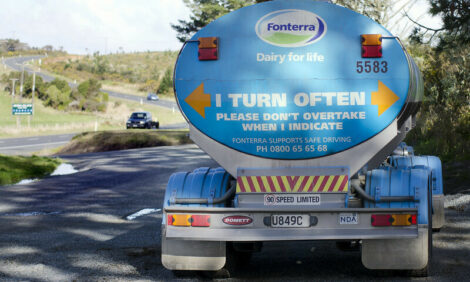



Kuwaiti 'death ship' carrying cattle causes stench in Cape Town
The ship is carrying 19,000 cattle from Brazil to IraqA "death ship" carrying thousands of cattle whose foul smell caused a stink in top tourist city Cape Town is expected to continue its voyage to Iraq later on Tuesday, Reuters reported, citing port officials.
The ship, en route from Brazil and carrying an estimated 19,000 cattle, docked in Cape Town on Sunday, bringing with it a nauseating odour that permeated the city centre. Some residents thought a large nearby sewerage works had conked out or their nostrils were being assailed by domestic plumbing problems, a Reuters witness said.
A local city councillor, however, confirmed on Monday that the smell was indeed from the "Al Kuwait" vessel, which was immediately boarded by inspectors from the National Council of Societies for the Prevention of Cruelty to Animals (NSPCA) on Sunday evening.
"According to the latest update from the vessel agent and the terminal operator, the estimated departure of the vessel remains 20 February 2024," port operator Transnet said in a statement on Tuesday.
Transnet said the vessel docked for animal feed, vessel stores, bunkers and medical assessments on the bovines.
The NSPCA, which campaigns against the live transport of animals, dubbed the vessel a "Kuwaiti death ship" and attributed the smell to the awful conditions animals endured, having spent two and a half weeks on board, with a build-up of faeces and ammonia.
"The faeces that the cattle were standing is already basically up to the top of their hooves in some pens," Grace le Grange, a senior inspector who boarded the vessel, told Reuters.
"In general the cattle themselves were not in a physically bad condition in terms of weight-wise, but our concern is what happens when they get back onto the ocean," she said.
Le Grange said several animals had to be euthanised due to injuries.



